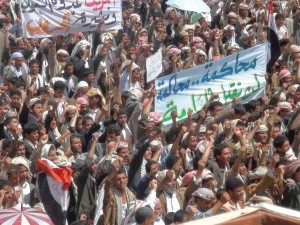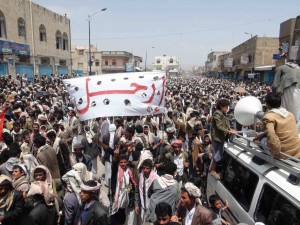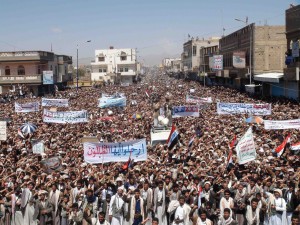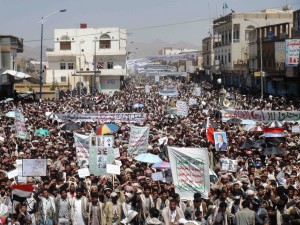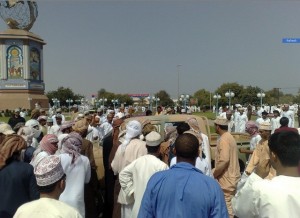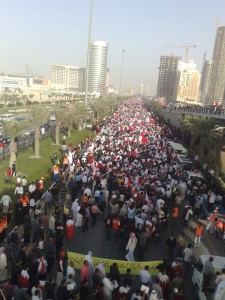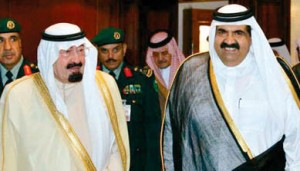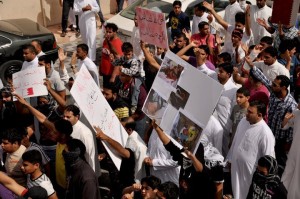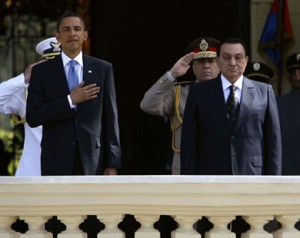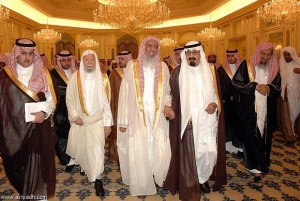
The growth of Saudi religious ideology is an indicator of instability in a country. As the religious ideology increases, armed conflict between the various segments of society becomes a big possibility.
There are two main observations concerning Saudi Wahabi religious influence:
Firstly, the presence and growth of saudi ideology will ultimately result in instability and eventually result in armed civil conflict. Yemen and Pakistan are prime examples.
This is due to the fact that Wahabism is intolerant to differing views which exist inside and out side of Islam. Everyone is considered an infidel excluding their followers.
Historically, Wahabism was used as a tool by regimes in order to intimidate and crush their opponents.
In the past Saudi Arabia was able to control and manipulate Wahabism, but a Wahabi insurgency against the Royal family from 2002-2008 clearly shows that this movement is uncontrollable.
Wahabi group activity is mostly accompanied by social disorder and violence. There are so many examples, which illustrate this point. Take Algeria in the late 1970s, which saw an insurgency that killed tens of thousands of innocent civilians. The primary cause of, which was Saudi Arabia’s investment in and propagation of Wahabism.
Morocco, a country which enjoys a friendly relationship with the Saudi kings has also witnessed an explosion of Salafi movements and new Al Qaeda cells pop up every now and again because of Saudi money. These movements have grown out of control and regularly make violent threats to the Government in Morroco..
In short, Wahabism causes social instability and violence in the Arab and Islamic world.
A close examination of history teaches us that Saudi political influence usually leads to civil wars. Yemen, Pakistan and Iraq obvious examples.
In those countries, Saudi Wahabi ideology was exported in order to strengthen saudi influence. When Saudi Arabia’s influence declines (as is the case right now) Wahabism is used in retribution and ultimately leading to chaos and destruction. Wahabism is used as a tool of death and not as tool for political penetration.
Wahabism was used in Iraq in order to reinforce Saudi foreign policy, whose goal was to sabotage the political process and not to build political influence. This resulted in civil war breaking out in the country, coupled with sectarian cleansing of central Iraq.
Those that use Wahabism as a tool to fight their opponents ultimately became its victims.
Wahabism was also used in Lebanon, in Nahr Al Barid against Hizbollah in order to strengthen and reaffirm Saudi influence.
It was also used in Gaza, with the financial and military backing of both Saudi Arabia and Egypt. In the end, the Wahabis set up an Islamic State in Rafah!!! They took up arms against Hamas and this ultimately lead to their downfall.
The Saudi Government continues to summon the Wahabis in other parts of the world, including Iran where it funds Jundullah as part of its regional conflict with Iran. Lets not forget Bandar Bin Sultan’s open threat to use Al Qaeda on Britian in February 2008, as the Guardian newspaper reported.
Secondly, many regimes are deluded into thinking that they can easily use Wahabism against their opponents. Part of Wahabism is subservient to authotarian regimes, regards them as legitimate rules and prohibits their attack, unless they openly commit kufr.
Yes, Wahabism is scary and attractive to those who have aspirations in using it, especially since its leaders can be easily deceived and manipulated into waging war, by using sectarianism to provoke the Wahabis.
Ali Abdullah Saleh frequently used this tactic. He unleashed the Wahabis and Al Qaeda on his opponents in the South and then unleashed them against his Zaidi opponents in the North. In the end Al Qaeda turned on him then it turned its attention to America. The Americans have regularly demanded that Ali Abdullah Saleh confront Al Qaeda, but this policy does not serve his interests. It also did not serve the interests of the rulers of Pakistan, when they violently confronted the extremist Wahabis in Waziristan and Swat Valley.
The same thing happened to the Sunni Arabs in Iraq, who are mostly followers of the Sunni Hanafi sect. They embraced Wahabism and Al Qaeda once they entered their country in order to strengthen their position after losing power. What happened next was a familiar story. The Wahabis waged war on everyone, the Americans, Shia, Kurds, Christians and their Sunni patrons, under the guise of the “Islamic State of Iraq”. The killing continues till this day.



